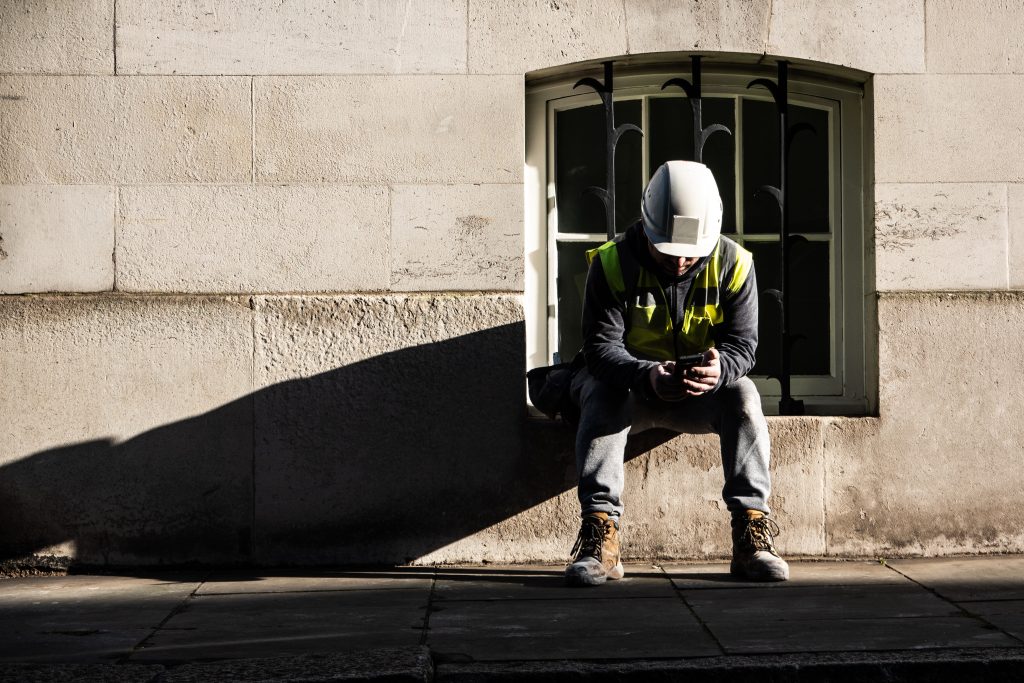Why are suicide rates in the UK higher amongst men?
‘Man Up!’ is a phrase that is frequently used in everyday conversations, although it is harmful. Men are told that they must be tough or else they would display weakness. Men are under additional pressure to suppress their feelings or to refrain from sharing them with others because doing so is seen as ‘girly’ and ’emotionally’ charged. These words shouldn’t be associated with anything unpleasant. Speaking to your partner, family, or friends about how you feel is not “girly” or “emotional”; after all, we are all human.
Men don’t or are unable to express their emotions because of what society has told them they should do and feel. Despite the fact that the majority of men experience anxiety, despair, or stress, 40% of men have never discussed their mental health with anybody. In a poll (conducted by priory.com), men were asked why they didn’t talk to anyone about their mental health. 40% responded that they had developed coping mechanisms. While 20% of respondents claimed that discussing mental health is stigmatised.
Men may commit suicide at higher rates for a variety of reasons, including abusing drugs, financial stress, and social obligations. All these elements can interact with one another, sending a person down a stressful and depressing rabbit hole where they turn to spending money or drugs to dull their pain. When extremes of these factors come together, men’s lives may drastically change, and their suicidal thoughts may worsen.
Mental health in the construction and surveying profession
Working within the construction industry is draining, physically and mentally. Due to the industry’s long working hours, demanding schedules, and unstable employment market, it can be extremely stressful for employees. Like how they would handle physical injuries, individuals and organisations must ensure that they have the proper processes and resources in place to address and prevent mental health issues. Because men dominate the construction industry, there may be a strong macho atmosphere in the workplace, making it difficult for employees to express their emotions. In such situations, the difficulties males encounter in treating mental health issues are exacerbated.

Suicide in the UK construction industry and surveying profession
Here are some figures on suicide and mental health in the construction industry and by default, the surveying profession:
- Male construction workers are 3 times more likely to commit suicide than the average man in the UK
- 2 construction workers, on average, take their own lives each day
- Suicide is the biggest killer of construction workers, ranking higher than falls
- Depression and anxiety are more common for construction workers than musculoskeletal disorders
- 10% of suicides are work-related
Who can I talk to if I’m feeling suicidal or depressed?
The best course of action if you’re feeling low is to consult with your doctor who is there to support you in difficult times. They can propose the best course of treatment for you and will keep any information you disclose private. The NHS offers a wide variety of mental health treatments, including talking therapies, support groups, and medicines. To get most of these, a GP recommendation is necessary.
There are alternatives, as the NHS is currently overburdened and the average wait for mental health care is 18 weeks. There are private counsellors available that can be found at the British Association of Counselling and Psychotherapy (BACP).
There’s always your partner, your family, or your friends to chat with. However, if you’re not yet comfortable talking to them, there are websites you can visit and phone lines you can call.
Samaritans are available around-the-clock. They provide support over the phone and are ready to talk at any time of the day or night. It is entirely managed by volunteers who have received training in impartial listening.
Mind is yet another charity that can help. They offer assistance and support to anyone dealing with a mental health issue. They promote mental health campaigns to increase awareness.
As a company, we want our team members to seek help as soon as they start to feel low, we regularly check in with people to see how they’re feeling in a subtle way so that people don’t feel they’re in the spotlight. Have you checked how your team or teammates are feeling?
You can find the links below.

How Powers supports mental health
At Powers, we want all our employees to be mentally healthy and happy, so we encourage them to talk, whether it’s with co-workers or with friends and family. Our team spend a lot of their time sharing a car driving to and from sites, this is a great space and opportunity for them to talk. We also offer an Employee Assistance Programme (EAP). EAP has a 24/7 helpline our staff can ring to speak to someone if they are having mental health issues or suicidal thoughts. They also offer a monthly newsletter, which shares insightful articles on ways to help with mental health.
What needs to change?
Adjustments can already be made. If you’re an employer, you may help your workers by providing them with resources like toolbox talks, open communication, creating a check-in culture, more flexibility, and inclusivity. We need to work together to help kids learn from a young age that it’s okay to feel sad and phrases such as ‘man up’ or ‘boys don’t cry’ isn’t true. It is harmful and insulting to say that boys don’t cry. Getting kids to be open and talk about their feelings will have an impact on how they treat themselves and other people as adults.
Suicide helplines and organisations:
Samaritans: You can call them on 116 123 for free or visit their website here
Mind: 0300 123 3393 or visit their webpage for more ways to get help
Construction industry helpline: 01345 605 1956
NHS: 999 if it is life-threatening or if it’s not an emergency you can ring 111 or visit 111.NHS.UK
Statistics from priory.com









